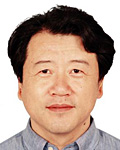| 
The recent leadership adjustment in the Democratic People's Republic of Korea (DPRK) was one of the world's most attention-grabbing affairs. A conference for the ruling Workers' Party of Korea (WPK) was successfully held on September 28. A day before the conference, Kim Jong Il, the DPRK's top leader, issued an order that promoted a group of military officers. Kim's youngest son Kim Jong Un was appointed a general. These activities prove the DPRK has established its new leadership.
Seeking stability
 |
|
NEW BLOOD: Kim Jong Un (second right), newly elected Vice Chairman of the Central Military Commission of the Workers' Party of Korea (WPK), attends a performance celebrating the 65th anniversary of the WPK's founding in Pyongyang on October 9 (YAO DAWEI) |
Though the United States declined to comment on the leadership adjustment, it is watching closely. Critics from the Republic of Korea (ROK) said the DPRK has had an heir-based leadership system for three generations, with pretty negative consequences. The ROK side believes such a system could lead to the internal instability of the DPRK and has actively planned to cope with emergency. Seoul said the odds of a bursting event in the DPRK have increased. The ROK has structured a plan, preparing to accept large numbers of DPRK refugees in the event of such an occurrence.
The WPK meeting and military order were an attempt to maintain the country's political stability. The DPRK collapse theory has been around since the end of the Cold War. After the DPRK's former top leader, Kim Il Sung, died in 1994—and as the country was hit by natural disasters in the following years—the theory gained prominence. When reports about Kim Jong Il's health condition were released in August 2008, the theory again became popular.
The DPRK did have some problems in its leadership structure. Four of the five members of the Standing Committee of the Political Bureau of the WPK Central Committee then had passed away, making the leadership very unsound. Among the aging leadership, there were few young or middle-aged individuals. In such an environment, a leader's health is representative of the country's stability; this is why Kim Jong Il's health was so significant. Therefore, the adjustment, enrichment and perpetuation of its leadership were at the top of the DPRK's agenda.
The September conference strengthened the WPK's leadership. Those at the conference elected a new WPK Central Committee and Political Bureau, enriched the WPK's leadership, promoted experienced and vigorous officials and selected young and middle-aged cadres. In this way, current leadership can continue.
The WPK Constitution was also amended. According to a report from the country's official news agency, the Korean Central News Agency, the resolution of the WPK conference said now is an important historic point and the country must strengthen the WPK's leadership. The amendments stressed the WPK's leadership in the country, while pledging to enhance the party's role in the military.
The conference hinted that the WPK's leadership will be further strengthened in both political and military aspects. Such a leadership structure is more stable than the previous one, so the country's political uncertainties should be greatly reduced.
Improving livelihoods
The outside world had two major questions about the WPK conference. First, can the heir system guarantee political stability? Second, how will the country develop in the future? Since the country's leadership is now fairly stable, the key concern is the country's policy choices.
For the DPRK, the top task is to seek a balance between the development of a national defense force and the promotion of the national standard of living. One DPRK policy the Western world strongly condemns is its Songun (military-first) policy, which Kim Jong Il advanced in January 1995. The Songun policy was born at a time when Western countries were propagandizing the DPRK collapse theory and Seoul was advocating ROK-led reunification. After dispatching troops to Iraq in 2003, George W. Bush's U.S. administration posed a threat to the DPRK; this only pressed the development of the Songun policy.
| 